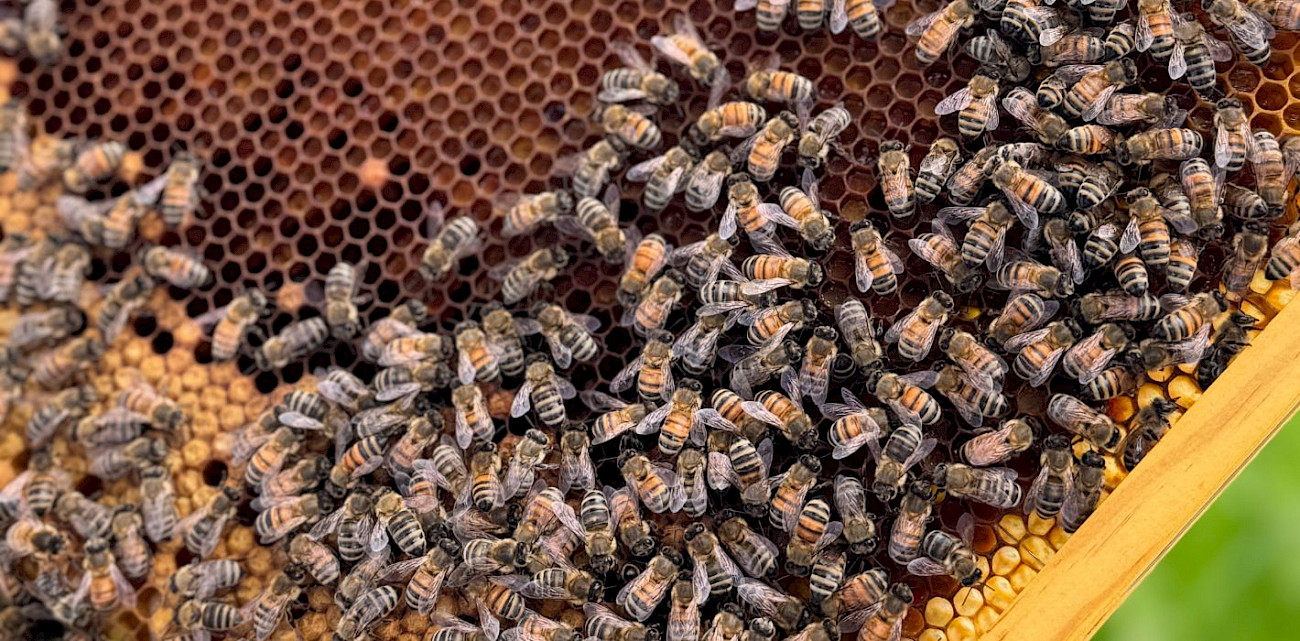It's buzzing at the clinic!
For the past week, we have welcomed over 60,000 bees to Genolier. These incredible creatures can travel up to 3 km to collect pollen. The first honey harvest, scheduled for this summer, will be a combination of linden, maple, and other local flowers.
The honey-making process is fascinating. Plant nectar is collected in the bees' crop, then passed through about four bees before being deposited in a hive cell. The bees heat and ventilate this nectar to remove moisture. When the moisture content reaches 18%, the cell is sealed with a film, allowing the honey to be preserved for years.
The queen bee also plays a crucial role by laying between 1000 and 1500 eggs per day. Bees never sleep and live on average 45 days, except for the queen, who can live for several years.
From a sustainability perspective, bees are indispensable. They ensure 80% of plant pollination, essential for fruit and vegetable production, as well as the survival of our ecosystem. Beekeepers, like Rafael, who oversees our hives, play a crucial role in the protection and preservation of these insects.
Rafael perfectly summarizes our admiration for bees: 'They live together in harmony, with each other and with nature.'
At the Genolier Clinic, we are proud of this commitment to nature and sustainability. We are no longer 350, but 60,350 thanks to our bees.

